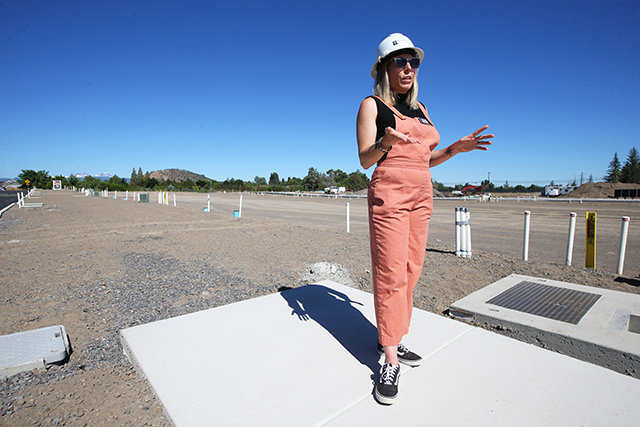As food needs rise, Central Oregon providers hold the line
Published 8:00 am Monday, July 21, 2025
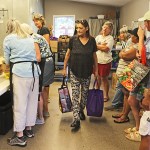

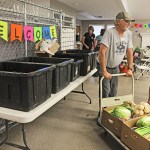
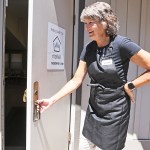
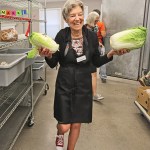

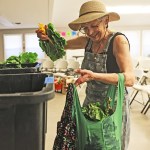
Oregon food aid has experienced massive cuts this year, and with funding for the Supplemental Nutrition Assistance Program — the federal aid program also known as food stamps — set to be slashed, the situation is about to get harder.
Local providers say that though the community has stepped up to provide donations, they are unsure how they will continue to serve hungry families at the high levels of demand they have been experiencing this summer.
Scott Cooper, executive director of the regional aid organization NeighborImpact, said there has been a 27.3% reduction in food coming from the Oregon Food Bank, but because the community has stepped up the reduction actually has been around 12%. He said the donations, however, are not the same as what would be provided from the food bank and so NeighborImpact is short on staples.
Trending
“We’re packed and jammed with produce, fresh produce,” he said. “The issue is not just quantity, it’s also variety, because you can’t eat kohlrabi forever. Lovely as kohlrabi is.”
On average this year, NeighborImpact has fed 78,000 people per month, said Cooper. He expects the changes and cuts in SNAP to drive numbers up once they are fully put into place, he said.
The “One Big Beautiful Bill” package of tax and spending cuts pushed through by President Donald Trump earlier this month includes significant reductions in food stamp benefits that will begin slowly but ramp up by 2028. The cuts come at a time when food banks are already struggling with slashes to federal food distribution programs, and food costs are rising rapidly.
House of Hope Ministries offers a food pantry Mondays and Thursdays in Redmond. President Darlene Woods said she normally sees 70 to 75 people in a week, and that numbers have been increasing. People have told her that they can’t afford both medication prescriptions as well as food, with rising food prices.
Woods encourages people to pick up food for themselves as well as their neighbors. The organization receives food from donors who hunt for shopping deals and other organizations. People often come in before the pantry is open to chat and share good deals, and Woods likes that it’s a social time for people too. She’s proud to offer what support she can for Redmond.
Rise in patrons for Family Kitchen
Olivia Townsend Parker, executive director of Family Kitchen, has seen numbers rise drastically at the in-person meal service over the past few months. People who are homeless and experiencing the changes around the county’s camping code and camping closures at China Hat Road have been coming in for meals more often, she said.
Trending
In the downtown Bend location, the organization has been steadily serving about 4,500 meals a month. This was true for January and February. In March, it served 5,400 meals in Bend. In April, it served 5,518 meals. In May, it served 6,859. June had similar numbers.
“The ends of longer months, we see more folks as benefits run out and that sort of thing,” Parker said. “Those May and June numbers were pretty shocking for us. That is by far, thousands more meals than we’ve ever really done in our Bend location.”
The rise in patrons led the organization to pause serving milk to drink, because it was spending thousands of dollars per month on milk. During the summer, they are serving iced tea, lemonade, water, coffee and electrolyte drinks. The kids love lemonade, though Townsend said it is not as nutritious, though it is less expensive than milk.
Family Kitchen buys the majority of its food because of the quantity needed. Food costs are increasing, she said. Most of the increased demand is for dinner, and the organization has started preparing 100 to 150 additional meals for each dinner service.
“It means needing more volunteers to help us cook that food, to help us prep that food, to help us serve that food. The more hands the better,” she said.
Family Kitchen, a no-barrier organization, has been seeing new people come in, both due to the general economy and the changes in the county’s camping code, said Parker. Many of the people they serve have one or two jobs, and know that Family Kitchen is available for meals if they need to make cuts in the budget.
“One new thing we started doing for our Wednesday and Friday lunches has been made-from-scratch pizza, which has been fun, a good way to get people some veggies and some proteins on a real homemade pizza crust,” she said.
Family Kitchen also provides food to the Stepping Stone Shelter in Bend that NeighborImpact runs, and has partnered with other organizations in Bend and Redmond. The organization serves either lunch or dinner every day. Meals include orange chicken with rice and salad or elote bowls with chicken and rice.
“May and June, we served about 6,800 meals in each of those months. If that continues, we will make it work. We will serve everyone that comes in our door,” Parker said. “If July and August, we see another 20% increase, and then September, October, we see another 20%, I don’t know. I don’t know that with our current budget and the current situation, I don’t know that we would be able to keep up with all of that. I think we might have to think about where and how we might have to cut things and stretch our pennies even more.”
Sisters CORE Market
On Monday afternoon last week, the pantry at Sisters CORE Market, was bustling. Shoppers collected bags and went around the room in an orderly fashion, following arrows on the floor to pick up meat, dry goods, produce, dairy and more. For the final round, aside from what was left over, volunteers put out over a dozen boxes of ice cream bars donated from Ray’s Food Place, which the market had never had before. Within minutes, every box was gone.
Sisters CORE Market, which stands for community, outreach, resources and emergency shelter, offers food for those who need it. Lori Blanchard, manager, said the organization has received plenty of donations and has partnerships with local grocery stores. The building opens as a cold weather shelter in the winter, and offers propane, behavioral health services and a free clothing closet. Organizers also offer breakfast and lunch on Mondays. In the next few months, it will have laundry and shower facilities on-site, which were paid for by grants and individual donations.
“We usually get about 60 families come in, that are represented,” she said. “We start in the morning about 7, and make food runs to Bend and Redmond. We have contracts with NeighborImpact, Trader Joe’s, Ray’s in town, Dollar General. We get 1,000 to 2,000 pounds of food a week, and I have a great crew that comes in and we sort it and do everything to get ready for opening right now.”
She said volunteers have noticed that each week there may be less of some products but others have been abundant. Donations have been generous and fill in the gaps. Even if there isn’t as much meat one week, there may be lots of beans and other legumes, for example.
“We, personally, have not felt any effects, because we have a community that’s supporting this,” she said. “It’s not just predicated on the federal government programs that are going to be cut….we probably are better off than a lot of the other places that don’t have different supply chains, but we’re doing really well.”
The market provides the option of picking up a pre-packed box of food as well. On Monday afternoon, the market served 64 families. More people tend to come in at the end of the month, she said.
Several of the roughly 20 volunteers also shop there. Skyleah Curtis, 80, who has volunteered at the market for around a year, said she loves being able to get fresh fruits and vegetables. She was especially happy to see the ice cream bars available. Curtis, who lives in Bend, said other markets don’t have as much fresh food as Sisters CORE does.
Luis Blanchard, president, said he loves the community aspect of the shelter and that everyone comes together to shop and chat every week.
“We’re all equals here,” he said. “The services in the tri-county area, for the vulnerable population, is only as strong as its weakest link, if we all support each other and help in that way, it really is amazing.”














